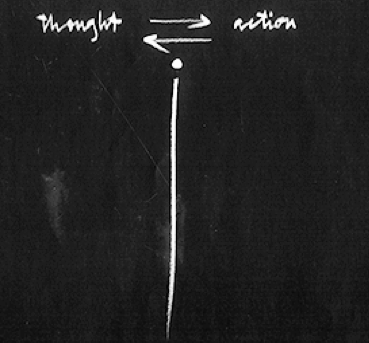THE ENQUIRY LABS /
CONNECTIVE PRACTICES
The Connective Practices are immersive participatory processes that connect inner system change and how we think to what can and needs to be done – locally and globally – towards shaping an ecological and humane future
The ‘connective practices’ shared in the Kassel21 Lab are Survival Room, Earth Forum, FRAMETALKS, Field of Commitment, Landing Strip for Souls and New Eyes for the World. These practices, or ‘instruments of consciousness’ as Shelley Sacks describes them, are all processes that connect inner system change and how we think to ‘what can and needs to be done’ – locally and globally.
All the practices work on three levels.
1. Substance and Content.
2. Building Capacities and a Sense of Creative Agency.
3. Emergent Initiatives and Actions.
Substance and content: They enable a radical, inspiring and deep exploration of questions and issues a, as individuals and as groups organisations, communities and networks.
Building Capacities: They introduce, develop and strengthen core capacities in the field of transformation and public pedagogies for democratic decision-making, shaping new narratives and futures-literacy. These include developing imaginal thought processes, active social listening, and new ways of thinking together,
Emergent Initiatives and Actions
The processes in each practice open up new perceptions and through carefully social listening and imaginal thinking together, new connective possibilities for actions and initiatives begin to emerge.
The practices also enable experiences and understandings of:
1 the role of imagination in transformation and connective dialogue processes
2 non-linear ways of uncovering and working with questions, both local and global
3 the ‘not-yet known’ and the future we want
4 the difference between ‘tools’ and ‘instruments of consciousness’
5 individual and collective habits of thinking and behaviors that stand in the way of developing new forms of relating to each other, ourselves and the world
6 what Beuys meant by “thinking is already sculpture’ and social sculpture’s ‘invisible materials’, and what this has to do with other statements of Beuys’ such as: “Every human being is an artist” and “We are the [r]evolution”
7 new forms of connective practice.
These practices draw not only on Beuys and his sources in Schiller, Goethe, Steiner, Nietzsche and others, but also integrate insights drawn from Paulo Freire’s radical pedagogy, Joanna Macy’s deep ecology practices, Ngugi wa Thiongo’s emphasis on ‘decolonizing the mind’, James Hillman ‘image work’ and Val Plumwood’s eco-feminism, as well as from many futures-literacy, contemplative enquiry, eco-feminist and decolonizing movements.
Join us in one or more of these practices to experience how they connect aesthetic processes, transformative education, contemplative enquiry and ethical-social action.





